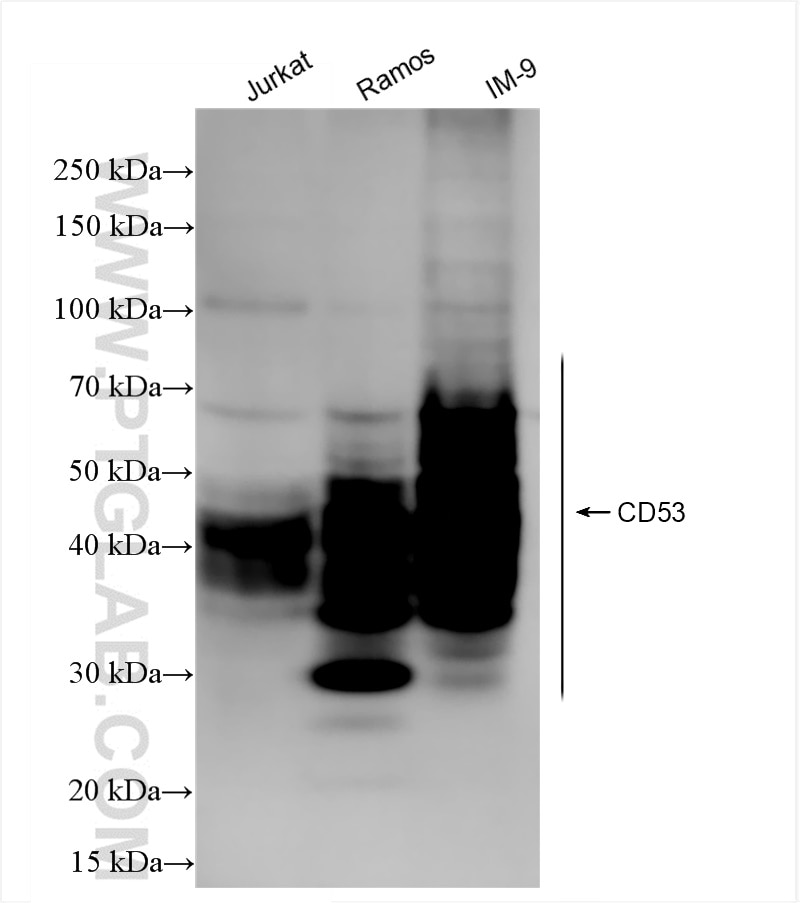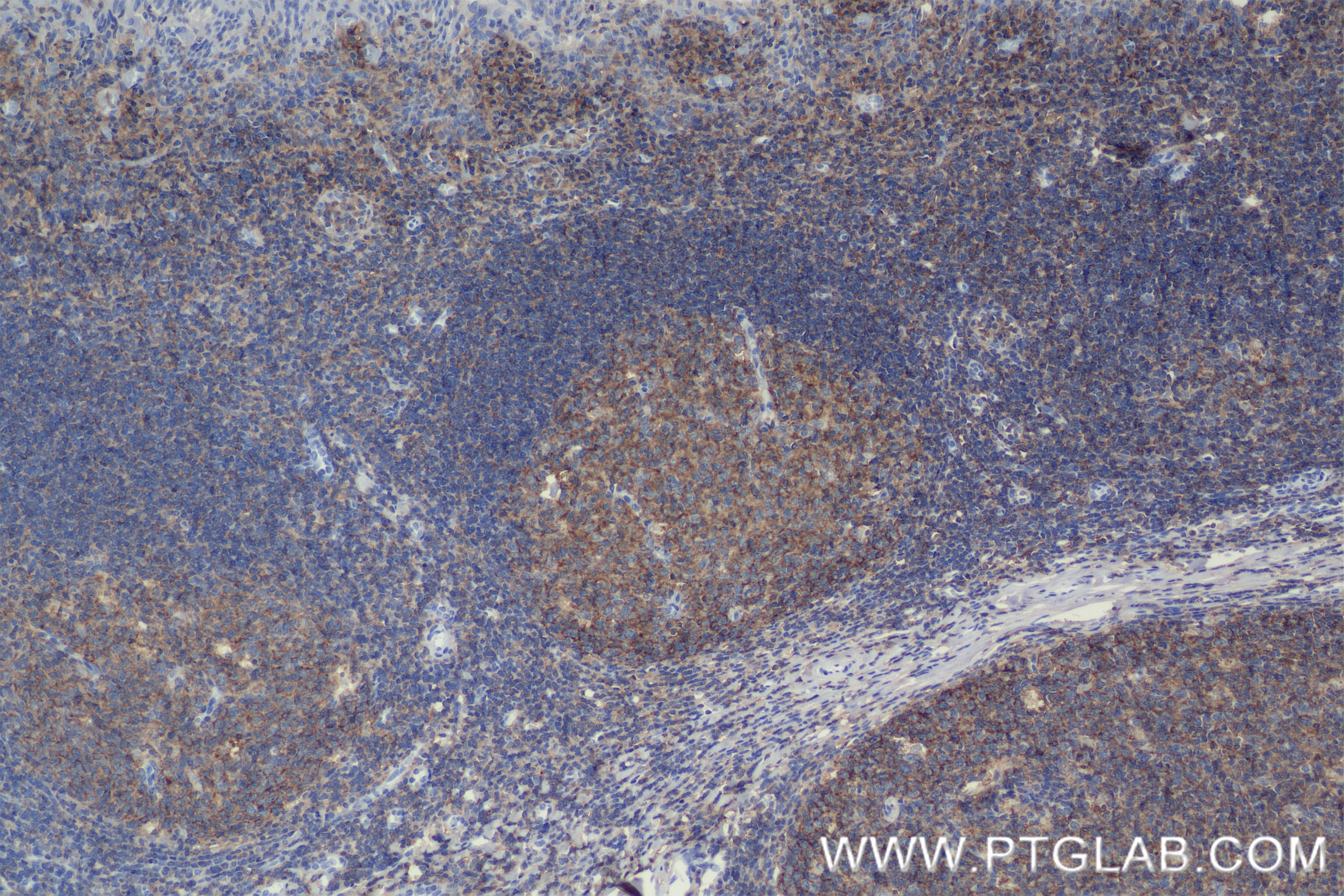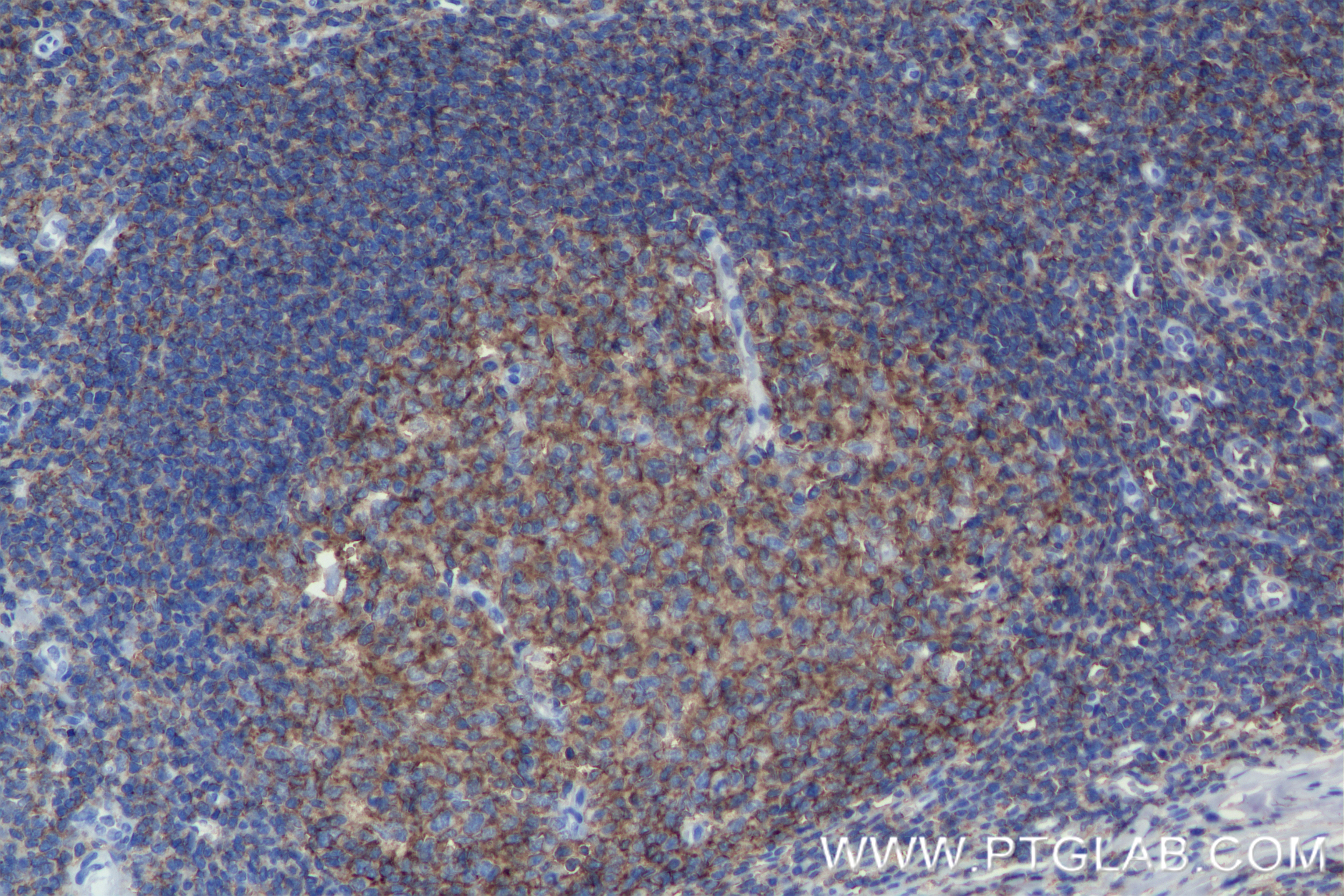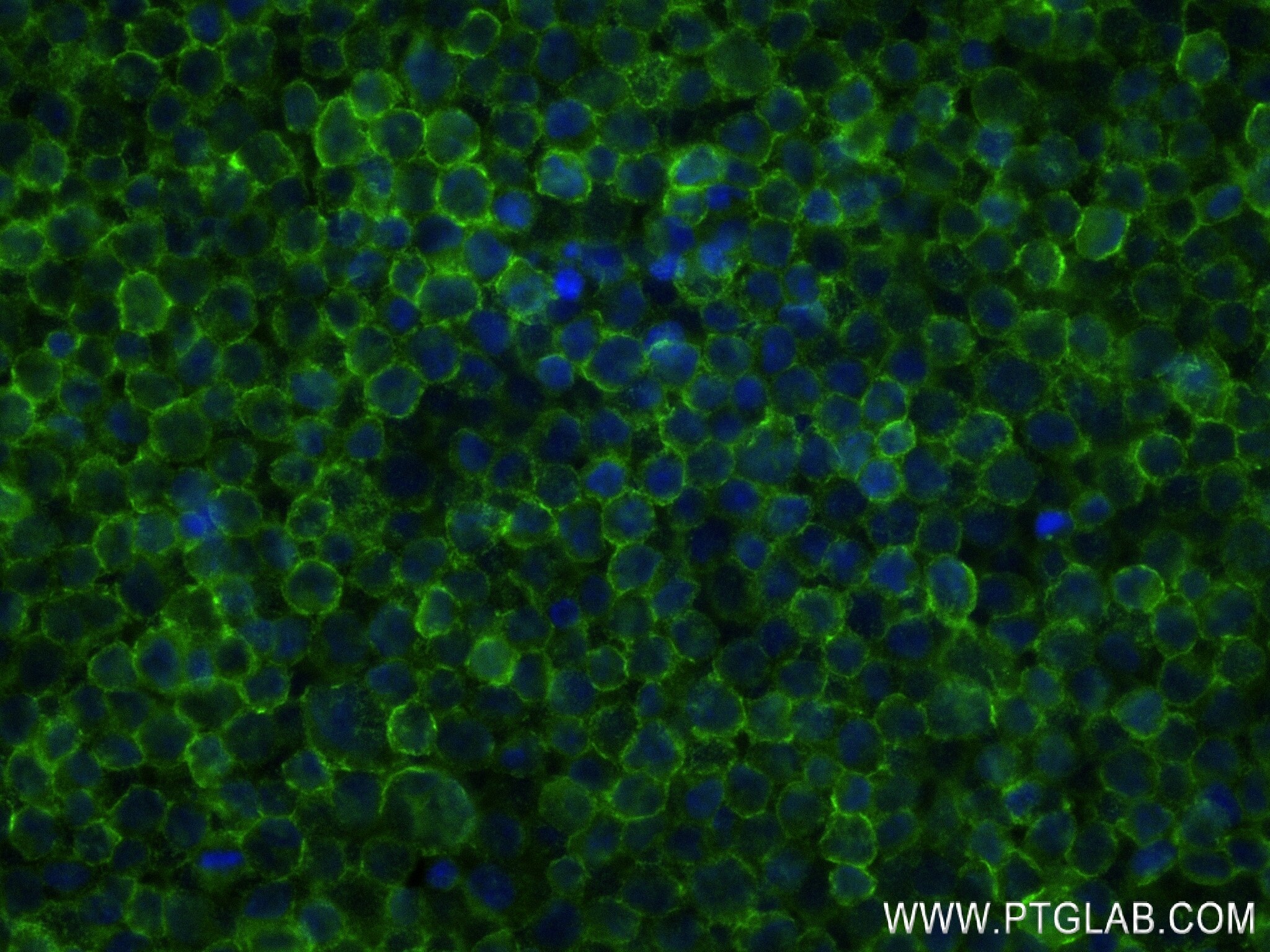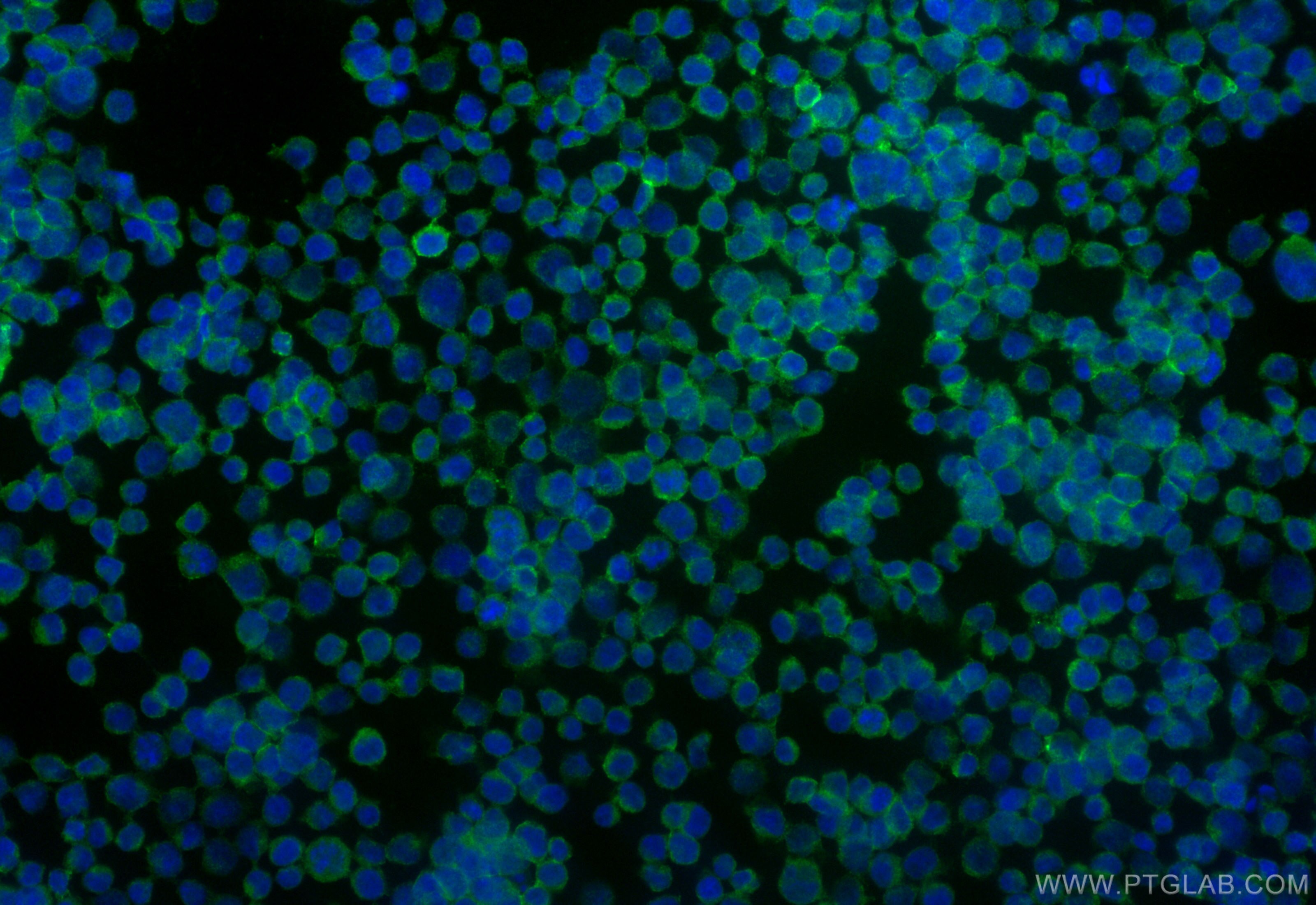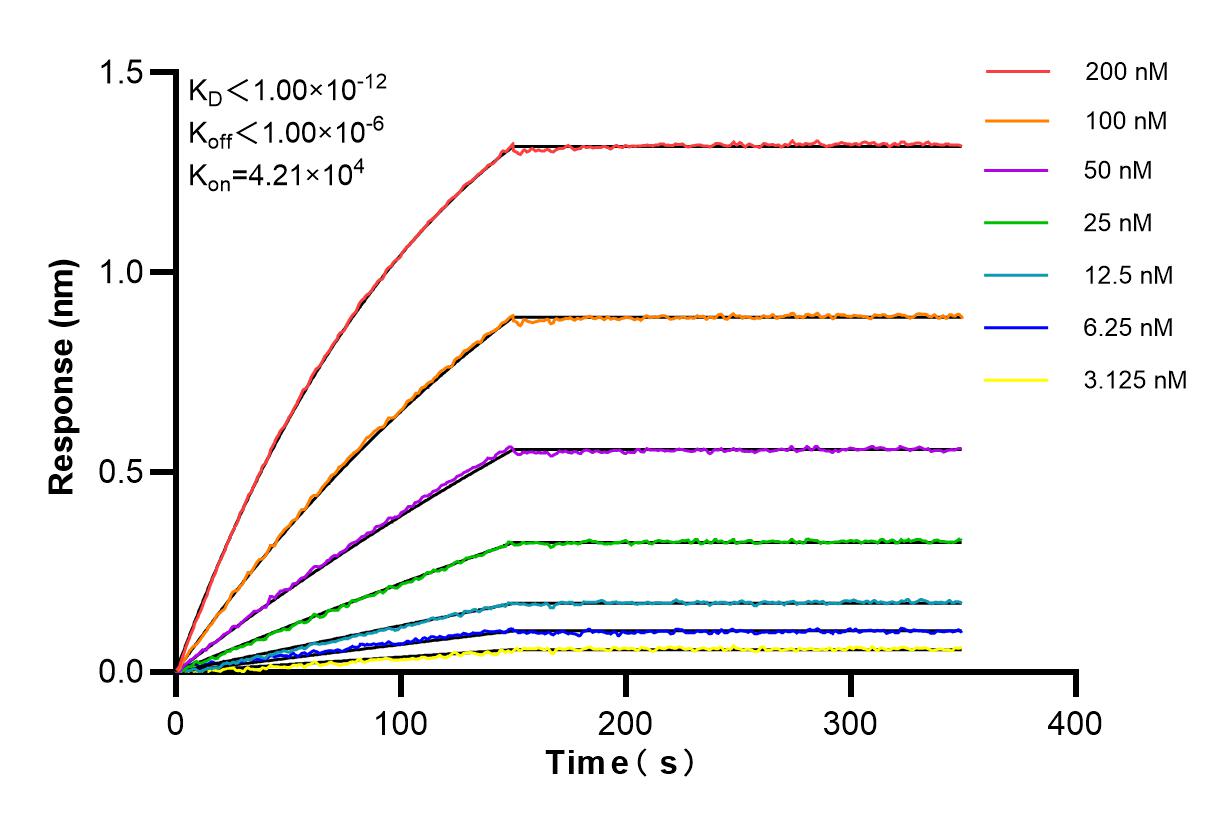Tested Applications
| Positive WB detected in | Jurkat cells, Ramos cells, IM-9 cells |
| Positive IHC detected in | human tonsillitis tissue Note: suggested antigen retrieval with TE buffer pH 9.0; (*) Alternatively, antigen retrieval may be performed with citrate buffer pH 6.0 |
| Positive IF/ICC detected in | Jurkat cells, Daudi cells |
Recommended dilution
| Application | Dilution |
|---|---|
| Western Blot (WB) | WB : 1:2000-1:12000 |
| Immunohistochemistry (IHC) | IHC : 1:500-1:2000 |
| Immunofluorescence (IF)/ICC | IF/ICC : 1:250-1:1000 |
| It is recommended that this reagent should be titrated in each testing system to obtain optimal results. | |
| Sample-dependent, Check data in validation data gallery. | |
Product Information
84837-1-RR targets CD53 in WB, IHC, IF/ICC, ELISA applications and shows reactivity with human samples.
| Tested Reactivity | human |
| Host / Isotype | Rabbit / IgG |
| Class | Recombinant |
| Type | Antibody |
| Immunogen |
CatNo: Eg2182 Product name: Recombinant Human CD53 protein (rFc Tag)(HPLC verified) Source: mammalian cells-derived, pHZ-KIsec-C-rFc Tag: C-rFc Domain: 107-181 aa of NM_000560.4 Sequence: EQKLNEYVAKGLTDSIHRYHSDNSTKAAWDSIQSFLQCCGINGTSDWTSGPPASCPSDRKVEGCYAKARLWFHSN Predict reactive species |
| Full Name | CD53 molecule |
| Calculated Molecular Weight | 24kDa |
| Observed Molecular Weight | 40 kDa |
| GenBank Accession Number | NM_000560.4 |
| Gene Symbol | CD53 |
| Gene ID (NCBI) | 963 |
| Conjugate | Unconjugated |
| Form | Liquid |
| Purification Method | Protein A purfication |
| UNIPROT ID | P19397 |
| Storage Buffer | PBS with 0.02% sodium azide and 50% glycerol, pH 7.3. |
| Storage Conditions | Store at -20°C. Stable for one year after shipment. Aliquoting is unnecessary for -20oC storage. 20ul sizes contain 0.1% BSA. |
Background Information
CD53 is also named as MOX44 and Tetraspanin-25 (Tspan-25). Tetraspanin CD53 is a member of the tetraspanin superfamily expressed exclusively within the immune compartment (PMID: 32440787). T cells depend on the phosphatase CD45 to initiate T cell receptor signaling. CD53 is shown to stabilize CD45 on the membrane and is required for optimal phosphatase activity and subsequent Lck activation. Together, CD53 as a regulator of CD45 activity required for T cell immunity (PMID: 35767951). CD53 is a marker for positively selected CD4+ CD8+ thymocytes (PMID: 11867561).
Protocols
| Product Specific Protocols | |
|---|---|
| WB protocol for CD53 antibody 84837-1-RR | Download protocol |
| IHC protocol for CD53 antibody 84837-1-RR | Download protocol |
| IF protocol for CD53 antibody 84837-1-RR | Download protocol |
| Standard Protocols | |
|---|---|
| Click here to view our Standard Protocols |
